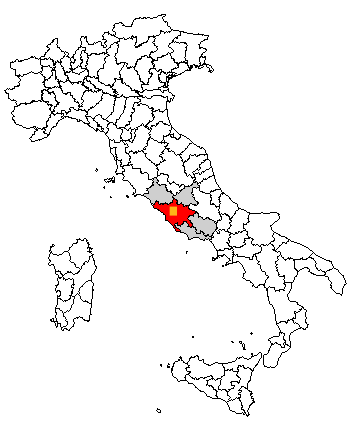

ROME:

Rome (Italian and Latin: Roma) is the capital city of Italy and of the Lazio region, as well as the country's largest and most populous comune, with about 2.8 million residents (3.8 million considering the whole urbanized area, as represented by the Province of Rome). It is located in the central-western portion of the Italian peninsula, where the river Aniene joins the Tiber. As one of the largest cities in the European Union, the Comune di Roma has a gross domestic product of 97 billion in the year 2005, equal to 6.7% of Italy's GDP the highest proportion of GDP produced by any single Italian comune. The current Mayor of Rome is Walter Veltroni.
According to legend, the city of Rome was founded by the twins Remus and Romulus on April 21, 753 BC. Archaeological evidence supports claims that Rome was inhabited since the 8th century BC and earlier. The city was the cradle of Roman civilization that produced the largest and longest-lasting empire of classical antiquity that reached its greatest extent in AD 117. The city was pivotal and responsible for the spread of Greco-Roman culture that endures to this day. Rome is also identified with the Roman Catholic Church and has been the Episcopal seat of the Popes since the 1st century AD. The State of the Vatican City, the sovereign territory of the Holy See and smallest nation in the world, is an enclave of Rome.
Rome, Caput mundi ("capital of the world"), Limen Apostolorum ("threshold of the Apostles"), la cittā dei sette colli ("the city of the seven hills") or simply l'Urbe ("the City"), is thoroughly modern and cosmopolitan. As one of the few major European cities that escaped World War II relatively unscathed, central Rome remains essentially Renaissance and Baroque in character. The Historic Centre of Rome is listed by UNESCO as a World Heritage Site by virtue of its three thousand years of accumulated history and art
Fatima Pilgrimages Index Espaņol English Index Viajes